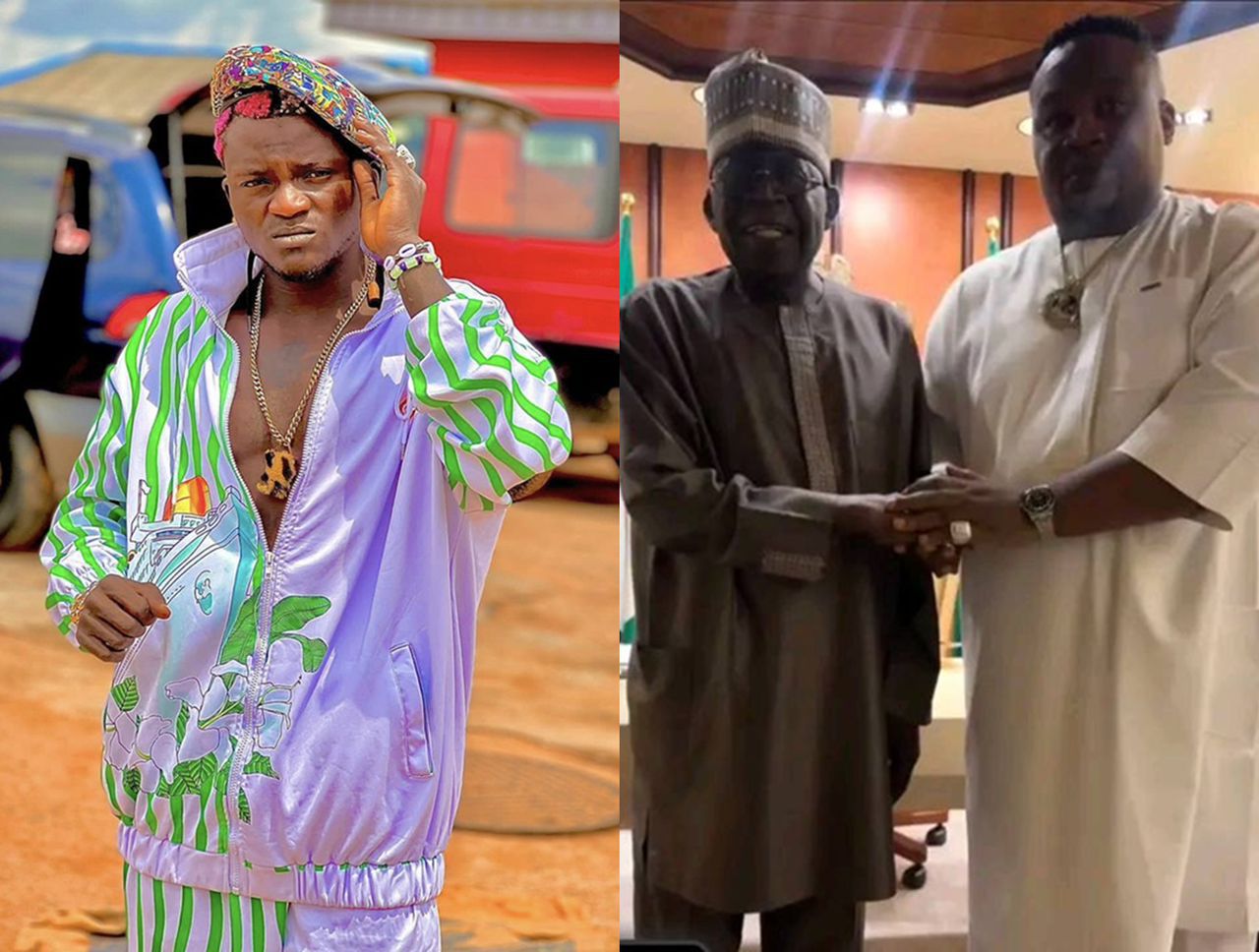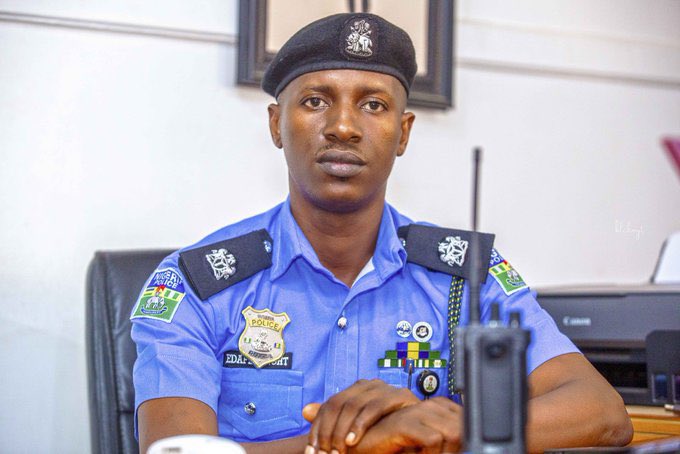
PORTABLE FIRES BACK AT CUBANA CHIEF PRIEST IN HEATED CLASH OVER NNAMDI KANU AND 2027 POLITICS

The political conversation in Nigeria took a dramatic and unexpected turn after controversial singer Habeeb Okikiola, popularly known as Portable, publicly tackled nightlife entrepreneur Cubana Chief Priest over his recent comments directed at President Bola Ahmed Tinubu and the political future of the South-East. In a fiery exchange that has since gone viral, Portable accused Cubana Chief Priest of playing politics for personal gain and using the ongoing detention of Nnamdi Kanu as a tool for political pressure. His comments have ignited a storm of reactions online, adding a new twist to an already heated national debate.
Cubana Chief Priest had earlier sparked controversy when he declared that as long as Nnamdi Kanu remains in detention, President Tinubu should not expect up to 10,000 votes from the South-East in the 2027 elections. According to him, the continued incarceration of the IPOB leader would be a major stumbling block to the president’s acceptance within the region. His statement spread quickly across social media, dominating conversations and drawing reactions from political analysts, supporters of the president, and ordinary citizens. Many saw his comment as a warning and a reflection of the tense political atmosphere in the region, while others dismissed it as mere political sensationalism.
Portable, however, was not having it. Known for his bluntness and unfiltered commentary, the singer wasted no time in posting a video where he confronted Cubana Chief Priest's claims head-on. According to Portable, Cubana had no moral standing to issue such a warning because he failed to address the release of Nnamdi Kanu when he himself visited President Tinubu. The singer accused him of going to meet the president solely to “fight for his stomach,” emphasizing that his visit was motivated by personal benefits rather than genuine advocacy. Portable’s video, filled with his signature mix of street wisdom, sarcasm, and fiery delivery, quickly drew massive attention across social platforms.
In the video, Portable did not just challenge the credibility of Cubana Chief Priest’s political stance; he also mocked the idea that the South-East would collectively stand its ground in the next election. According to him, money remains a decisive factor in Nigerian politics, and many of the same people Cubana expects to withhold their votes would eventually “collect money and fight for their stomachs” when the time comes. It was a sharp, street-level critique of the political landscape, pointing to a reality that many Nigerians privately acknowledge but rarely say openly: in times of elections, voter conviction often loses to economic desperation.
Portable’s statement struck a chord because it highlighted a longstanding problem that has shaped Nigerian politics for decades—the deep entanglement of poverty, patronage, and political loyalty. His remarks brought forward the uncomfortable truth that while activists and influencers may push narratives online, the average voter battling economic hardship sees politics through a different lens entirely. In challenging Cubana Chief Priest, Portable indirectly questioned not only the nightlife mogul’s sincerity but also the effectiveness of political threats based on regional loyalty.
The video has since divided public opinion. Some Nigerians applauded Portable for speaking “the hard truth,” arguing that Cubana Chief Priest’s message came too late and seemed opportunistic. They believe Portable simply called out what many already suspected—that powerful public figures often align themselves with politicians for business interests rather than genuine advocacy. Others criticized Portable for trivializing a serious political issue with his brash style, insisting that Cubana Chief Priest’s message was a necessary wake-up call to the federal government regarding the sentiments in the South-East.
Meanwhile, political observers note that the Portable–Cubana clash underscores a bigger national tension over Nnamdi Kanu’s prolonged detention. The IPOB leader, who has been at the center of one of the most contentious legal and political battles in recent Nigerian history, continues to stir deep emotions across the country, especially in the South-East. Many residents in the region consider his release a symbol of justice and reconciliation, and any public figure who speaks on the matter instantly becomes part of a sensitive debate. Cubana Chief Priest’s comments were therefore bound to provoke strong reactions, but few expected the pushback to come from someone like Portable.
Portable’s involvement, however surprising, reflects how deeply politics has penetrated Nigeria’s entertainment scene. In recent years, celebrities have increasingly used their platforms to comment on national issues, influence public opinion, and, in some cases, shape political campaigns. While many see this as a positive development for democracy, others worry that sensationalism may overshadow informed discussions, especially when statements come from celebrities known more for controversy than political understanding.
Still, the clash has achieved something remarkable—it has brought to the forefront the growing frustration among Nigerians who feel that political conversations are often driven by personal interests rather than collective progress. Portable’s blunt accusation that Cubana Chief Priest went to “fight for his stomach” echoes a widespread belief that access to political leaders is frequently used to secure personal favors instead of addressing national concerns. On the other hand, Cubana Chief Priest’s warning about voter backlash reflects a region grappling with political exclusion and searching for ways to assert its voice.
As the 2027 elections draw closer, moments like this foreshadow the increasing intensity of political narratives and the role public figures will play. Whether or not one agrees with Portable’s approach, his comments have undeniably shifted the conversation and forced Nigerians to reexamine the motivations behind political statements made by influential personalities. The debate over Nnamdi Kanu’s release will undoubtedly continue, and both supporters and critics of the government will keep using every available platform to push their views.
In many ways, the Portable–Cubana exchange symbolizes the complexity of Nigerian politics—a mix of emotion, blunt truth, public performance, and competing interests. It also shows how fast political conversations can evolve when amplified by social media and celebrity culture. What started as a single post by Cubana Chief Priest has grown into a national discussion, drawing attention from unexpected quarters and highlighting the unpredictable nature of public dialogue in an age where anyone with a phone can shape headlines.
For now, the argument continues to dominate conversations online, with supporters of both men trading words and analysts weighing in on what it means for 2027. One thing is certain: Portable’s fiery outburst has added a new layer to the political drama, raising questions about sincerity, loyalty, and the role of influence in shaping public opinion. Whether this clash will lead to meaningful dialogue or fade into the long list of Nigeria’s social media controversies remains to be seen, but for the moment, it has captured the nation’s attention in a way only Nigerian politics can—loud, unpredictable, and deeply reflective of the society’s pulse.


